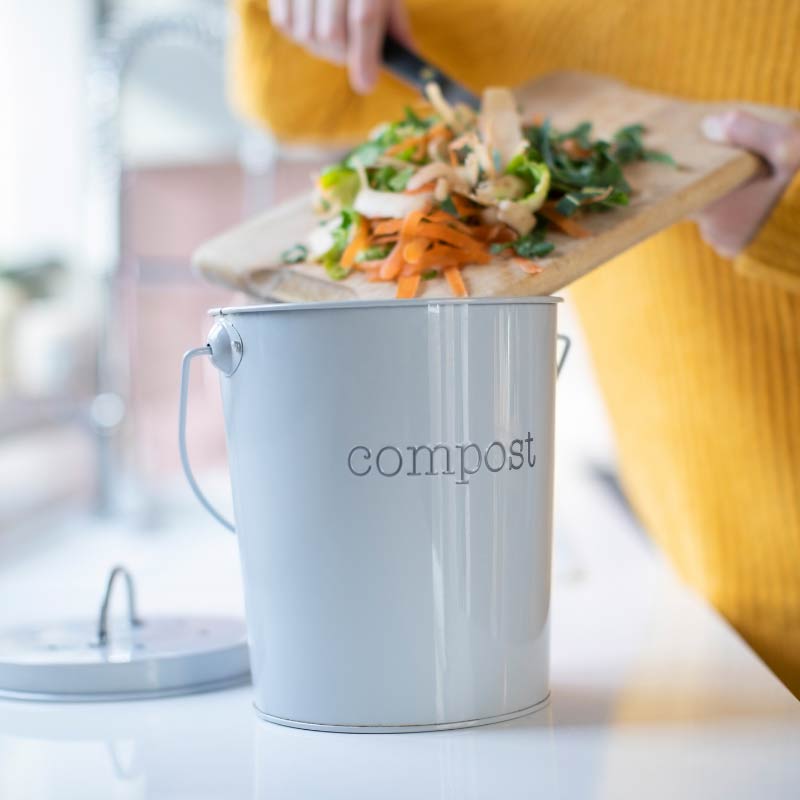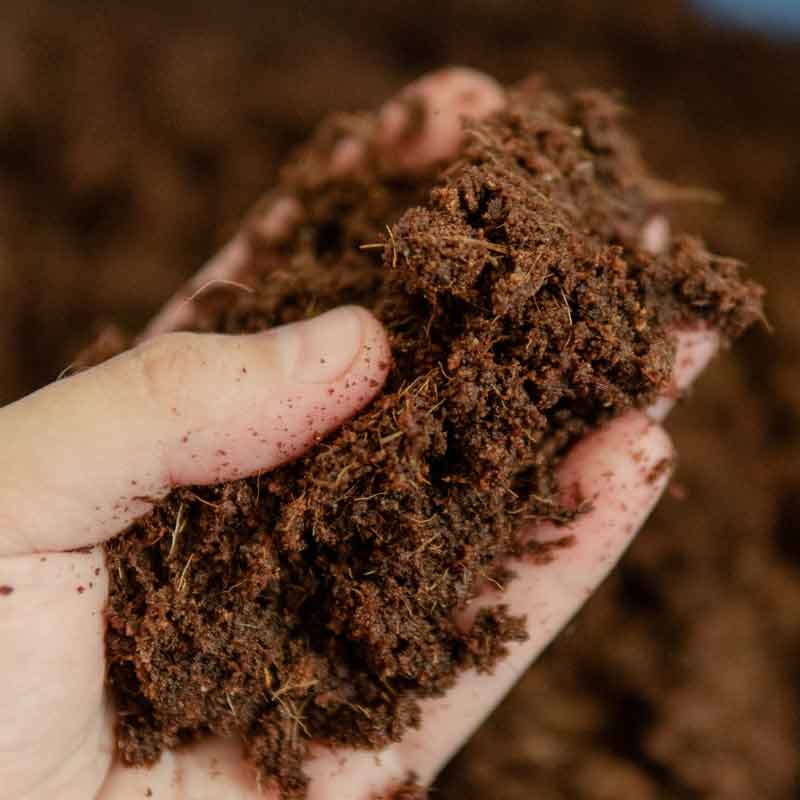All You Need To Know About Composting
As a kid, you were probably taught not to waste food. But try as you might, some expired or discarded food always ends up in the bin. But what if I told you there’s a way to recycle your unwanted food, while helping the environment and your garden? Introducing… composting.
What is Composting?
Composting is the process of recycling decomposing organic matter into humus—or what gardeners affectionately call ‘black gold’. Under the right conditions, fungi, worms, and microorganisms break down food and plant matter to create nutrient-rich soil.
Why Compost?
Composting has many benefits for the home gardener. Whether you’re into growing fruits and veggies, flowers, or just love a lush, green lawn—composting can help. Humus, created by composting, makes for a great soil conditioner for lawns and garden beds. And it can help soil retain moisture and stay at the right temperature.
Tired of spending money on fertiliser? Humus can help there, too. Because it’s rich in beneficial microorganisms, humus acts as a great, long-lasting natural fertiliser. Microorganisms break down materials in humus and allow plants to utilise these materials easier. Making for strong stems and big, beautiful leaves.
Last but not least, composting is great for the environment. A large amount of compostable food waste ends up in landfills every year in Australia. And by recycling these scraps, you’re saving bin space, saving valuable organic material from landfills, and saving the environment, all at the same time.
Composting Options
Your living situation, the amount of space in your backyard, and the waste you have access to will all dictate the type and method of composting you choose.
To start with, there are two types of composting—cold (passive composting) and hot (active composting).
Cold composting requires the least amount of effort. Simply throw whatever organic material you have into a tub or pile in your backyard. Eventually, the organic matter will be broken down into useable compost. However, this process can take over a year (or more) to complete. With this method, you’re essentially allowing nature to take its course with no assistance. If you’re time-poor and don’t immediately need compost for your garden, this is a great option. However, there are ways to speed this process along.
Hot composting is for the more avid gardeners. To maintain a hot compost pile, you’ll need to monitor the components added to it, the moisture level, and the temperature. And with the right recipe, you might have usable compost in as little as a month. Another benefit of hot composting is the reduced presence of weeds, harmful insects, diseases, and pesticides. With cold composting, the temperature never rises enough to kill-off all the nasties. But with hot composting, this is less of an issue.
Bonus type: vermicomposting. Vermicomposting is technically neither hot nor cold, and instead relies on worms to break down your organic matter. It’s equally as beneficial for your garden and holds the added benefit of producing nutrient-rich worm castings!
Now, there are a few compost methods—via a worm bin, compost tumbler, compost bin, or compost pile.
A worm bin is great for smaller spaces and for those who will only be composting food scraps. A tumbler is great for those with a bit more space, and for those who might compost some garden waste alongside food scraps. But, if you want to go all the way in the composting world, opt for a bin or open pile. These methods can handle the most organic matter and generally have the best results.
What to Compost
Most organic material from your home and garden can be composted. This includes—fruit and vegetable scraps, tea leaves (and teabags), coffee grounds, and eggshells. From the garden, add—flowers, grass clippings, leaves, weeds, and pruned branches. Note: any woody material, such as branches, will take a long time to break down, so avoid adding too much. Also, paper-like materials such as cardboard and newspaper can be added to your compost pile, too.
But there are also a handful of things that shouldn’t be composted. Meat scraps, bones, and peels/rinds that may contain pesticides should be avoided. While meat can be composted, it may attract unwanted pests or wildlife, and pesticide-ridden peels can compromise your pile. Also, pet poo (specifically dog and cat poo) can carry parasites that are bad for humans. So, avoid adding these to your compost, especially if you plan to use it on fruit or vegetable plants. However, chicken poo can be utilised (in moderation).
So, now you know all about composting and its benefits! To learn how to create your own compost, click here to read How to Create Your Own Compost.
Could you use a helping hand in your garden? Simply Helping offers gardening services for all your planting, pruning, and pest-management needs. We can even help you start and maintain your new compost pile. Click here to learn more about our gardening services and contact us today.






